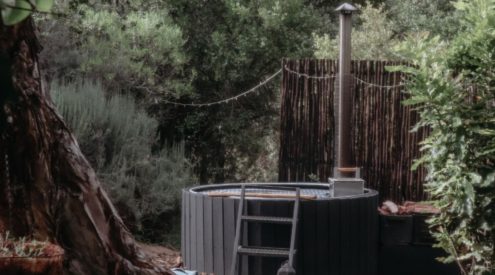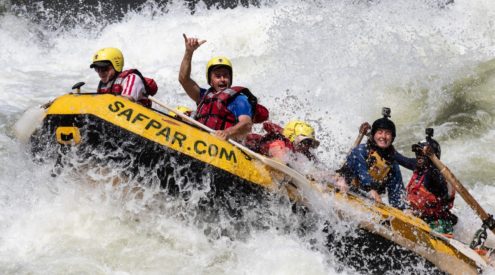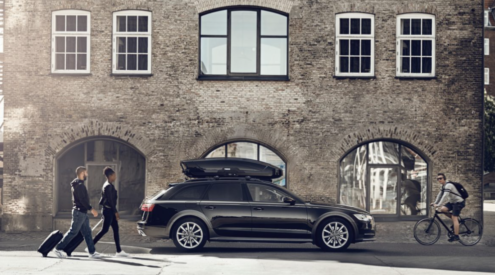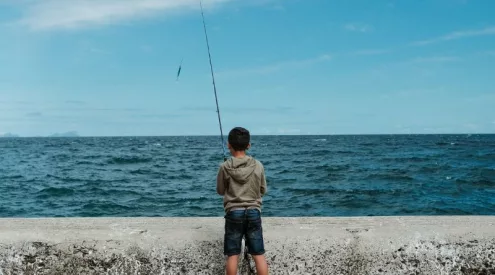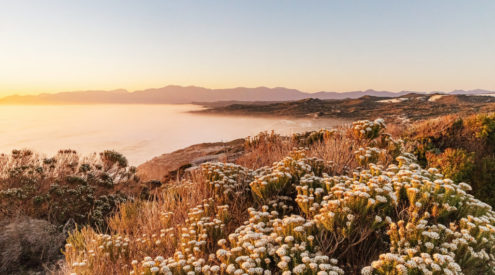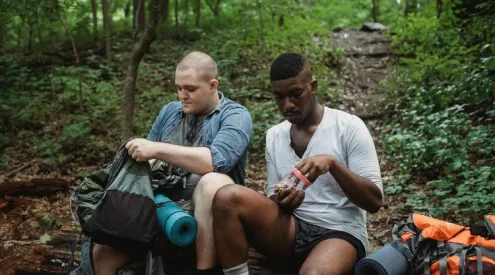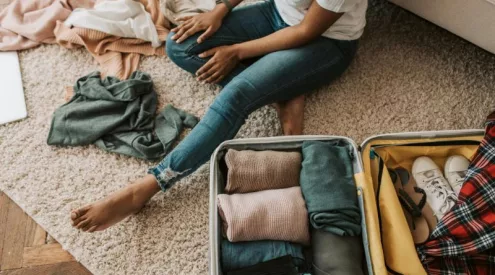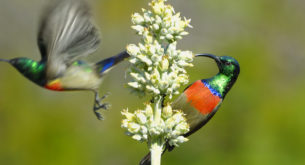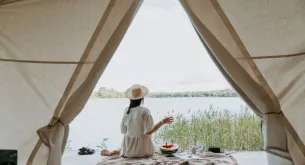My husband and I have been travelling for close on two years. During this time, and prior to departure, I’ve been keeping a record of the costs involved. Based on this data I hope that a couple of these tips will come in handy for anyone planning their next trip.
Where do you begin?
The first action is to set up an Excel spreadsheet. This could either make you cry (when you see how much money you are spending) or become an effective tool for budgeting and managing your cash flow.
Travel tip: Make sure a trusted friend or family member knows where to locate your will and other valuable documents. The same applies to spare keys and security codes. If you’re leaving the country, ensure you have adequate travel insurance. Check out www.glacier.co.za for all your financial planning needs before your next trip.
What are some of the expenses you can expect prior to departure?
For ideas on what to pack with regards to:
- Luggage
- Clothing
- Shoes
- Travel accessories
- Toiletries
- Medicines
- Travel documents
- Valuables
- Gifts
read my blog Practical Packing Tips for Long Term Travel. The above items are part of your pre-trip expenses.
Tip: You don’t need to have everything. Clothes for colder climates can be rented. We hired all our gear for Antarctica and Kilimanjaro and bought cheap items of clothing at the markets in India and Vietnam and gave them away when we didn’t need them anymore.
Passport
Plan well in advance. Processing time can take longer than expected. Make sure your passport is valid for at least six months after you return home.
Tip: If you don’t have the time to make application there are companies that queue on your behalf but they can be pricey so shop around.
Don’t – Q: www.dontq.co.za
Queue-less: www.queue-less.co.za
Visas
Check to see if you need visas for the countries you are visiting. The costs of the visas vary depending on the country. Visas for certain countries are obtainable on arrival at your point of entry.
Tip: Again you can use visa companies to obtain the visas on your behalf but be aware of the costs involved; often more costly than the visa.
MDS Visapak: www.visas.co.za
Foreign Representatives in SA: www.dfa.gov.za/foreign/forrep/index.htm
Tourist Visa Requirements for South Africans: http://www.rainbownation.com/visa
Visa requirements for SA passport holders: www.flightcentre.co.za/visas
Where can you go without needing a visa on a SA passport?: blog.getaway.co.za/travel-blog/sa-passport
Flight tickets
By going direct to the airline one can often find a good deal. Certain travel agents buy in bulk so they can also offer cheaper tickets. Do some internet searches to compare prices.
Tip: Some factors that influence the cost of the ticket would be:
– if you want a flexible date change
– refundable ticket or not
– extendable or not
– date of ticket (seasons)
– is there a charge for making changes
– the fuller the flight the more expensive
Make sure when you are comparing prices you are comparing apples with apples. Ask what the terms and conditions are and try to get the ‘class’ of ticket. Economy is divided into fare structures. Usually they use the letters of the alphabet to differentiate between the different cost codes. Be aware, cheaper fares are non-refundable and are unable to be cancelled. (Information obtained from a travel agent)
Domestic Travel
If you live outside of any of the major cities, budget for transport costs (flight, bus, car hire, petrol, accommodation) for getting to the airport to catch international flights.
Tip: Take a look at these sites for last-minute deals for accommodation
Mtbeds: www.mtbeds.co.za
Booking.com: www.booking.com
International Travel Insurance
Purchase your medical insurance from a reputable company. It will not cover medical expenses while you are still within your country of residence. However it’s important to bear in mind that purchasing your International Travel Insurance soon after purchasing your flight ticket one can include cover for delayed departure due to unforeseen circumstances like illness, injury or death of a family member.
Tip: Most banks offer travel insurance should you purchase your airline ticket on your credit card. However, the maximum period of cover is usually 6 months. If you decide to participate in any extreme sports or events make sure that you are covered and that your insurance is sufficient.
TIC Travel Insurance: http://www.tic.co.za
Regent Travel Insurance: http://www.regenttravel.co.za
Gizmos and gadgets
Electronic devices and other gadgets
Netbooks are small and fit easily into the hydration pocket of most day packs. Having access to wi-fi was essential so that we could connect at our convenience and not depend on internet cafés and hotel lobbies. This also meant that we were able to access our bank in private so that we could manage our debit orders and cash flow.
iPod Touch / iPhone and earphones / e-book readers / iPad
We bought a robust travel cover for protection for the iPod Touch. The benefits of the iPod Touch was quick internet connectivity and access to emails on the fly, listening to music, store and make notes, add contacts, read books, search maps and stay connected via Skype (keeping costs down as opposed to using the cell).
External zip drive – 500 Gigs of storage
Memory sticks
Point-and-shoot camera
- Batteries
- Memory cards
- Cables and charger
My husband Barry’s camera equipment – 14kg of it (weighed more than his clothes)
Note: The question most people asked us was, “Did we insure your equipment?” The cost to insure this kind of equipment when travelling is exorbitant. So the plain answer is, no. You need to make that decision. Accidents do happen and there is the risk of theft as well.
International Driving License
This is available from any branch of the Automobile Association. Issue is immediate.
The AA of SA: www.aa.co.za/content/82/driving-permits
Medical Check-ups
Dentist
It’s a good idea to visit the dentist for a last minute check, clean and polish. If you are going to be travelling in 3rd world countries for an extended period of time, bar an accident, you don’t want to be visiting the dentist unnecessarily. We met a woman who needed to visit the dentist for a minor complaint and ended up having 14 fillings.
Doctors
Get those annual check ups done, sort out those niggles and ask your doctor to write you a letter if you are taking any prescription medication along with enough scripts for while you are away.
Should you be required to have vaccinations try to have these well before you leave. In some cases one might feel lousy a week or so after the shot and you don’t want to be travelling while under the weather.
Tip:
– If you are allergic to anything or have a medical condition make sure you wear an internationally recognised identification bracelet or neck chain.
– Check with a travel clinic if you are required to have vaccinations or if prophylactics are necessary.
Medic Alert: www.medicalert.co.za/
Netcare Travel Clinics: www.travelclinics.co.za/live/index.php
General expenses
Hairdressers
I don’t think this is as big an issue for the guys (although I am generalising here) but having to keep up with the hairdresser while on long term travel is annoying. I couldn’t be bothered with highlights and haircuts, so after 25 years as a blonde I reverted back to my original colour and grew my hair.
SARS Tax Returns
If you are going to be away when your tax return is due sign up with e-filing or leave your documents with a tax consultant to submit on your behalf.
SARS efiling: http://www.sarsefiling.co.za/
Debit orders
Should you have any debit orders still applicable, leave enough money in the account for the first month and you can manage the rest via internet banking once you are travelling.
Okay, so now that you are hopelessly depressed about the costs involved, this is where the spending becomes a whole lot more fun.
What are some of the expenses you can expect while travelling?
Once we began travelling I created a new Excel spreadsheet for each country we visited. I had an extra column with a formula conversion, based on the exchange rate that would convert the local currency we were spending into the Rand value. This way we could keep track of patterns, trends and statistics. Accommodation, food and gratuities, and transport were our biggest expenses.
Universal Currency Converter: http://www.xe.com/
Accommodation
Our initial plan was to go cheap and nasty due to the length of time we were going to be travelling. It didn’t take us long to discover that where we stayed contributed significantly to our travel experience. A good night’s sleep, in a clean, comfortable bed became a priority for us. This unfortunately raised the costs too, so you will need to decide what the payoff is. For alternate accommodation options please read my blog post on this site entitled “10 unconventional travel ideas for a tight budget“.
Tips:
– A room with private bathroom was more expensive
– Renting a small furnished apartment for a week was sometimes cheaper than a B&B or hostel
– Taking an over night bus or train saves on accommodation costs
– Camping might save on costs but then you end up lugging equipment around which adds to the overall weight of your luggage
Trip Advisor: www.tripadvisor.com
Virtual Tourist: www.virtualtourist.com
Food and gratuities
Part of our travel experience was not to shop for food; cook it and wash the dishes. The few times we did self-cater, always meant that we were leaving behind some of our perishables like milk, cheese, bread and butter. The one time we both decided we should really start making more of an effort to self-cater ended in our food being confiscated at the border crossing between Argentina and Chile. With a condescending look from the bus driver, he shook his head and in a heavy Spanish accent advised me, “Juu mus sai, nuthin’ to diklair”. I was the only person on a bus load of passengers who ticked “Something to Delcare”. What was the moral of the story? Don’t self-catered again.
Tip: Most South American countries have this fabulous option called “Menu del dia” which means “Menu of the Day”. It is usually a 3-course meal at a very reasonable price.
Transport
We managed to travel 15,000km on local transport. Hiring a car was possible but that included other risks like contending with bad drivers and crowded streets including pedestrians and stray animals. With at least two-26 hour bus trips in Argentina we found the long haul buses to be very comfortable and spacious. Price dependent, there are seats that semi-recline or some that fold down almost as flat as a bed.
Tips:
– Look out for daily / weekly / monthly bus / train passes
– Hostel lobbies often include a notice board with useful information like rideshares and other travellers offering to share travel costs
– If you are prepared to share a taxi with other passengers this also reduces the costs
– Should you hire a car read the small print about the insurance and check the excess
– If you are crossing the border in a hired car make sure you have all the relevant registration documents for the vehicle
Tours and Tipping
While we are not fond of organised tours there were times trying to organise it on our own became complicated and even more expensive. Don’t forget to budget tipping in here as well.
The following is a list of a couple of miscellaneous expenses that cropped up:
- Membership for one year at the South American Explorers Club
- Spanish School for lessons and language practise
- Laundry (gave up washing by hand after 3 months)
- Airport departure taxes in Dollars (encountered at every airport. They usually want it in cash in American Dollars)
- Thank you gifts for people we met along the way
- Over the counter medicines for the common coughs and colds
- Vitamins
- Toiletries
- Phone calls (didn’t take a cell)
- Treats: Spa treatments, fancy dinners
- Postcards, stamps and stationery
- Payment for public toilets and purchasing toilet paper at the door (very common in South America)
Plan your route
Another cost saving tip is to plan the direction of your travel and stick with it. Our motivation was to move with the seasons and to stay in summer as long as possible. We had only taken summer clothes as winter clothes meant we’d have to carry bigger bags and they would weigh much more (only took a day pack each). We were always bumping into a number of people who travelled helter-skelter all over the continent and subsequently spent a whole lot more on transport, visas and departure taxes.
International Distance Calculator: http://distancecalculator.globefeed.com/Country_Distance_Calculator.asp
Managing your money on the road
I think this is very much a personal choice. We personally prefer to use cash. You want to keep your bank charges as low as possible. Some might find using a credit card convenient but long term travel can result in high bank charges. Service charges are about R40 per cash withdrawal from your credit card and there is an extra 2% on purchases made with a credit card outside of SA. Negotiate with your bank before leaving and ask if they would be able to offer you reduced rates or a fixed monthly fee while you travel.
We’ve always make use of the ATM’s without a hitch. We withdraw the maximum daily limit available from our cheque account. When you travel into remote destinations credit card and debit card facilities are not always available. Withdrawing from the ATM meant that we were getting the rate of exchange on that day and was very easy to manage. Also a number of establishments are negotiable if you pay in cash. Keep small change and notes for easy payment on local taxis and for purchasing cold drinks and snacks.
Keep a small, sufficient amount of money for daily use in an accessible purse. You can always attach this with a lanyard to your backpack. That way if you are paying and you are in a hurry you won’t leave your purse behind on the counter.
If you are on a budget ask for receipts or keep a small notepad and pen handy so that you can jot down your daily expenses.
Banks also offer a debit card purely for travel which can be loaded with either Pounds or Dollars. You can view your transactions and statements on line. While I like the idea there is a charge for each transaction which is ultimately costing one more money. I don’t have any experience with traveller’s cheques.
Conclusion
This might sound like a costly adventure. The truth is”¦it is. There are very few free or cheap places left in the world. But that doesn’t mean long term travel isn’t possible or affordable. We might need to sacrifice something in the short term to be able to achieve what we want in the long term. The secret to keeping travel costs low is to purchases only what you need, not what you want. As someone once told me, “it’s not how much you earn that’s the problem, its how much you spend.”
Somehow, we always find enough money for our financial Achilles Heel. For some it might be music or computers, cars or houses, fancy clothes or jewellery”¦.for me, it’s without a doubt”¦travelling. Have fun planning.

